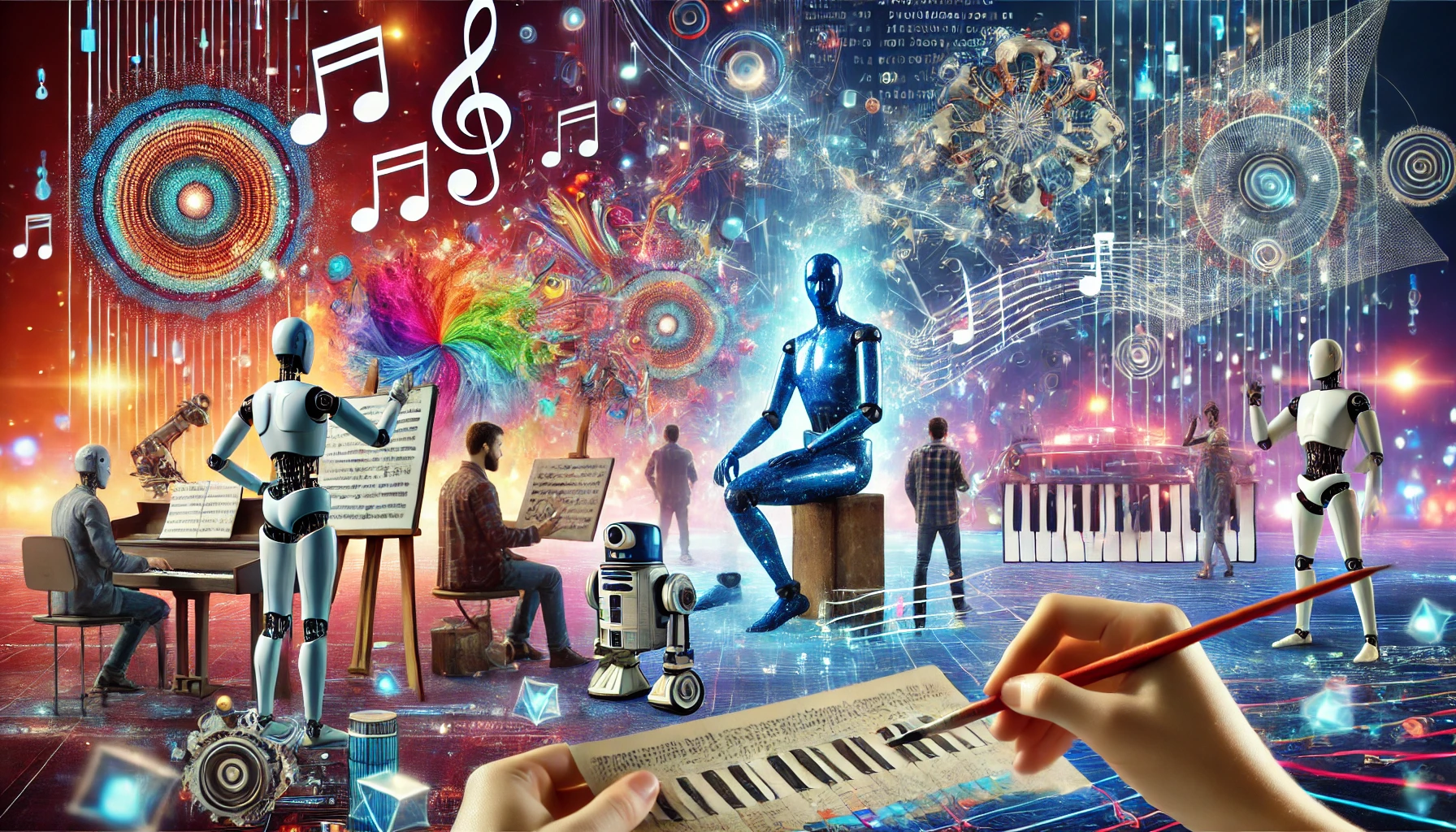How AI is Revolutionizing Creative Industries: From Art to Film and Music

The Rise of AI in Creative Spaces
AI has officially entered the chat, and it's not just here to crunch numbers or optimize algorithms. It's transforming entire industries, and the creative world is no exception. From art galleries to Hollywood, AI is shaking things up, and let's be honest, it's doing it with style. Whether it’s AI-generated artwork hanging on the walls or AI composing symphonies that Mozart would give a thumbs-up to, the fusion of technology and creativity is redefining the artistic landscape. But, is AI the next Picasso or just a flashy imitator? Let’s dive in and see how it’s changing the game across various creative fields.
AI-Generated Art: A Brush with Algorithms
Picture this: an algorithm analyzing thousands of famous paintings, learning techniques, styles, and moods, and then creating an artwork that could pass as a masterpiece. AI-generated art has become a hot topic, with AI models like DALL·E and DeepArt producing pieces that blur the lines between human and machine creation. Whether it’s abstract, surreal, or photo-realistic, AI is proving that it can hold a digital brush like a seasoned artist. In fact, AI-generated art has even fetched hefty sums at auctions, leaving us to wonder—should human artists be nervous or inspired? While some argue that AI lacks the emotional depth to truly replicate human creativity, others see it as a collaborative tool that enhances artistic expression.
Music Composition: When Algorithms Hit the Right Note
Not just a visual artist, AI is also dabbling in the world of music. Whether you're into classical symphonies or EDM bangers, AI is flexing its musical muscles. With tools like Amper Music and AIVA, musicians are collaborating with AI to compose tracks faster than ever. It can analyze countless music pieces, figure out patterns, and whip up new compositions that range from hauntingly beautiful to eerily robotic. Now, before you get concerned about robots taking over the Grammy Awards, keep in mind that these AI tools are often used as co-creators, helping musicians brainstorm or fine-tune their tracks. While an AI might generate the melody, the human touch is often still needed to bring it to life. So, we might not be seeing a fully AI-driven band anytime soon, but we’re certainly listening to AI-crafted tunes more than we realize!
Hollywood 2.0: Scriptwriting, CGI, and AI Actors?
When it comes to film, AI is a major behind-the-scenes player. In scriptwriting, AI tools like ScriptBook analyze scripts and predict how successful a film might be, while others assist in generating storylines, offering plot suggestions that screenwriters can use as a springboard. But AI’s influence doesn’t stop there. Remember that epic battle scene in your favorite blockbuster? Chances are, AI was involved in creating those mind-blowing visual effects. AI is also stepping into the spotlight (literally) with AI-generated actors. Yep, you read that right. Companies are now developing AI actors that can perform in films without ever having to go through a costume change! These virtual actors could be game-changers for the industry, cutting down production costs and offering endless creative possibilities. But this also raises a burning question: will AI actors steal the show from Hollywood’s human stars?
AI as a Tool vs. Human Creativity: The Ultimate Showdown
Now, let’s address the elephant—or should we say, algorithm—in the room. Is AI merely a tool for enhancing human creativity, or is it a competitor for artists, musicians, and filmmakers? On one hand, AI offers incredible efficiency. Need a soundtrack for your video? AI’s got you covered. Stuck on a plot twist for your screenplay? AI can help brainstorm ideas. It takes over repetitive tasks, giving creators more time to focus on the bigger picture. But on the flip side, can a machine really understand the complexities of human emotions, culture, and experience? AI may be a whiz at analyzing patterns and replicating artistic styles, but it still lacks the ability to truly 'feel' the art. Creativity, for many, is deeply intertwined with personal experience, and that’s something no algorithm can replicate—at least not yet. So, while AI makes an impressive assistant, it’s unlikely to completely replace the nuances of human creativity anytime soon.
What’s Next for AI in Creative Industries?
As AI continues to evolve, its role in the creative world will undoubtedly expand. We might see more AI-generated art exhibits, AI-produced music albums, or even entire films created by AI from start to finish. The key will be finding a balance between leveraging AI’s capabilities and preserving the uniqueness of human creativity. Will future artists collaborate with algorithms like partners, or will there be a rivalry for artistic dominance? As AI becomes more sophisticated, these are questions that both creators and audiences will need to grapple with.
Where Do You Stand?
So, what do you think? Is AI enhancing creativity, or is it stealing the show? As AI-generated content becomes more mainstream, the debate around its role in the creative process will only intensify. Whether you’re an artist, musician, filmmaker, or simply a fan of creative works, AI’s influence is something we can’t ignore. But one thing’s for sure—the future of creativity is going to be a wild ride. Are you ready to embrace AI as a creative partner, or will you champion the irreplaceable magic of human artistry?



